- Home
- George R. R. Martin
Down And Dirty wc-5 Page 22
Down And Dirty wc-5 Read online
Page 22
"I want to hear `Cindy Lou or `That'll Be the Day' or `It's So Easy' or `T town,"' said Cordelia, distractedly swirling her gin and tonic. "Not this shit."
I'll settle for "Not Fade Away," Jack thought. He watched Buddy Holley slog through the dismal pop retrospective and started getting real depressed. It was enough to make him maybe wish that Holley had died at the height of his initial popularity and not survived to fall into this ghastly self-mockery.
Inebriated conversation and drunken laughter escalated at the surrounding tables. It appeared that most in the lounge had completely forgotten that Buddy Holley was performing onstage. When Holley came to the end of his set, he introduced the final number very simply. "This is something new," he said. The sparse crowd was having none of it; they had turned actively hostile.
"Fuck you!" somebody shouted. "Turn on the jukebox!" Holley shrugged. Turned. Walked off the stage.
His backup guitarists quietly put their instruments down; the drummer got up and laid his sticks on an amp.
"Why doesn't he do his classics?" said Cordelia. "Hang on," she said to her companions. Then she got up and collared Buddy Holley as he headed toward the bar. They saw her talking earnestly to the man. She led him back to the table, dragged up a vacant chair, appeared to be making him sit through dint of sheer will. Holley looked bemused at the whole affair. Cordelia made introductions. The musician courteously acknowledged each name and shook hands in turn.
Jack found the man's grip warm and firm, not flabby at all. Cordelia said, "We're four of your greatest fans."
"Sort of sorry you're all here," said Holley. "I feel like I owe everyone an apology. This isn't a good show tonight." He shrugged. "'Course most nights in lounges are like that." Holley smiled self-deprecatingly.
"Why don't you play your own music?" said Bagabond without preamble.
"Your old music," said Cordelia. "The great stufF" Holley looked around the table. "I've got my reasons," he said. "It ain't a matter of not wanting to. I just can't."
"Well," said Cordelia, smiling, "maybe I can help change your mind." She launched into her spiel about the benefit at the Funhouse, about how Holley could go on early in the following Saturday's performance, that maybe he could do a medley of the music that had propelled him to superstardom in the fifties and early sixties, that perhaps-just maybe-the concert and the telecast could rejuvenate his career. "Just like when the Boss found Gary U.S. Bonds playing in bars like this," she finished up.
Buddy Holley looked honestly astonished by Cordelia's outpouring of enthusiasm. He put his elbows on the table, closely studying the club soda and lime the waitress had brought him, finally looking up at her with a slight smile. "Listen," he said. " I thank you. I truly do. Hearing something like this makes my night-hell, the whole year." He looked away. "But I can't do it."
"But you can," said Cordelia. He shook his head.
"Think about it."
"Won't do no good," he said. "It won't work." He patted her hand. "But thanks for the thought." And with that, he nodded to the rest of them, then got up and trudged through the smoke to the stage for his second set.
"Damn," said Cordelia.
Jack watched the musician's back as Holley hoisted himself up onto the stage. There was something familiar about how the man carried himself. It was the sense of defeat. Jack thought he'd last seen that slight slumping of shoulders and hanging of head when he'd looked in the mirror. Just this morning.
He wondered how many years and what disasters had beaten Buddy Holley down. I wish-At first the thought didn't complete itself. Then he said to himself, I wish I could help.
"You want to go or stay?" said C.C. to Cordelia.
"Go," said Cordelia. Almost too low to be heard, she continued, "But I think I'll be back."
"Like MacArthur?" said Bagabond.
"More like Sergeant Preston of the Mounties," said Cordelia.
Sunday
"So who are you calling a chickie?" said Cordelia, voice colder than the ocean off Jones Beach.
"What I be sayin'," said the Holiday Inn morning clerk, "is that we can't be givin' out guests' room numbers to just any chickie what comes along." He smiled at her. "Rules."
"You want to know how early I had to get up to catch a train out here?" Cordelia demanded. "Do you know how long I waited for a cab at the New Brunswick station?"
The clerk's easy smile started to fray at the lips. "Sorry."
"I'm not a goddamned groupie!" Cordelia slapped an expensively embossed business card down on the counter. "I'm trying to make Holley a star."
"Already was." The clerk picked up the card and examined it. Below Cordelia's name it read Associate Producer.' The escalated job title had been in lieu of a raise. "No shit? You work with GF and G, the folks what do the Robert Townsend show an' all that Spike Lee stuff?" He sounded halfway impressed.
"No shit," said Cordelia. She tried smiling. "Honest."
"And you're gonna pull Buddy Holley out of this shithole?"
"Gonna try."
"O-kay," said the clerk, grinning. He glanced at the registration spinner. "Room eighty-four twenty," He looked at Cordelia significantly.
"So?"
With a tone of voice that suggested "Don't you know nothin'?" the clerk said, "The main roads leadin' out of Lubbock. The highway to Nashville."
"Oh," said Cordelia.
Buddy Holley had been asleep when Cordelia knocked on the door of room 8420 at 9:25. That had been obvious when he opened the door. His gray-streaked black hair was in disarray. His glasses were slightly askew as he peered out into the hallway.
"It's me, Cordelia Chaisson. Remember? From last night?"
"Um, right." Holley seemed to gather himself. "Can I help you?"
"I'm here to take you to breakfast. I need to talk with you. It's quite important."
Buddy Holley shook his head bemusedly. "Are you the irresistible force? Or the immovable object?"
Cordelia shrugged.
"Give me ten," said Holley. "I'll meet you down in the lobby."
"Promise?" said Cordelia.
Holley smiled slightly, nodded, and shut the door.
Buddy Holley came to the breakfast table in crisp denim jeans, a flowered western shirt, and a brown corduroy jacket. He looked somewhat the worse for wear, but comfortable.
He seated himself and said,
"You gonna evangelize me again?", "If I can. We can talk about dat after we get some coffee."
"Tea for me," he said. "Herbal. I brought my own. The tea selection in the kitchen is pretty shabby."
The waitress came and took their order.
"Around your neck," said Holley, pointing with his glance. "That a fetish? I saw it last night, but I was preoccupied." Cordelia unhooked the clasp and passed the fetish over. The tiny silver alligator and the fossil tooth were bound to the delicate oval of sandstone with a tough strand of dried gut. Holley turned the object over and over, examining it closely. "Doesn't look American southwest-Polynesian? Australia, maybe?"
"Pretty good," said Cordelia. "Aboriginal."
"What tribe? I know the Aranda pretty well, even the Wikmunkan and the Murngin, but this just ain't familiar."
"It was made by a young urban aborigine," said Cordelia. She hesitated a moment. It both excited and hurt her to think of Wyungare. And how, she wondered, was the central Australian revolution, such as it was, going? She'd been too busy with the benefit to watch much news. "He gave it to me as a going-away gift."
"Let me guess," said Holley. "The sandstone's from Uluru?" Cordelia nodded. Uluru, true name of what the Europeans called Ayers Rock. "And the reptile's your totem, of course." He held the object up to the light before passing it back over. "There's considerable power here. Not just a token."
She refastened the chain. "How do you know?"
He grinned crookedly at her. "Just don't laugh too loud, okay?"
Cordelia felt puzzled. "Okay."
"Ever since things went to hell-since they fell
apart around 1972," he said hesitantly, " I been lookin' around." He contemplatively sipped his tea.
"For what?" Cordelia finally said.
"For whatever, for anything that meant something. I was just-searching."
Cordelia thought for a moment. "Spirituality?"
Holley nodded vehemently. "Absolutely. The limos were gone, the homes, the private jet and the high living, the-"
He stopped in midsentence. "All gone. There had to be something else besides hitting the bottle and the bottom."
"And you've found it?"
"I'm still huntin'." He met her gaze and smiled. "Lotta years and a lotta miles. You know something? I'm a lot more popular in Africa and the rest of the world than I am here. Back in '75 my agent gave me a last chance and booked me into this crazy pan-African tour. Things fell apart-well, I fell part. I really got screwed up after I backed out of a gig in Jo'burg. Somehow I stole a Land-Rover and ended up drinkin' two fifths of Jim Beam 'way out in the bush. You know how alcohol poisonin' works? Shoot, I was well on my way."
Cordelia stared at him, held entranced by the flat, West Texas twang. The man was a storyteller.
"Bushmen found me. Tribesmen from out of the Kalahari. First thing I knew was a! Kung shaman leanin' down over me and lettin' out the most ungodly screams you ever heard. Later I found out he was taking the sickness into himself and then gettin' shed of it into the air." Holley contemplatively touched the pad of his thumb to his incisors. "That was the beginning."
"And since?" said Cordelia.
"I keep lookin'. I search everywhere. When I played a string of bars in the Dakotas and the Midwest I learned about Rolling Thunder and the generations of Black Elk. The more I learned, the more I wanted to know," His voice took on a dreamy quality. "When I was with the Lakota, I cried for a vision. The shaman took me through the inipi ceremony and sent me up the hill to receive the wakan, the holy beings." Holley smiled ruefully. "The Thunder Beings came, but that was about all. I got wet and cold." He shrugged. "So it goes."
"You keep searching," said Cordelia.
"I do that," said Holley. "I learn. I been off booze since South Africa. No more drugs either. As for what I'm learnin', it ain't easy to work with a hardshell Baptist growin' up, but that's what I've tried to do."
It occurred to Cordelia that, for all he'd been saying, Buddy Holley still seemed very anchored in the physical universe. She didn't have the same sense of ethereal dissociation that she'd gotten from spiritually transformed rock stars such as Cat Stevens or Richie Furay. She nibbled a bite from her neglected English muffin. "Most of what I know about this, I learned from my aboriginal friend, but I've thought about it. Sometimes, in my job, I wonder whether rock stars, pop singers, entertainers in the public eye in America, are sort of the contemporary equivalent of shamans."
Holley nodded seriously. "Men and women of power. Absolutely."
"They have the magic."
Buddy Holley laughed. "Fortunately the ones who believe they do, usually have nothing. And the ones who truly possess the power, don't consciously know it."
Cordelia finished her muffin. "The performers at the benefit concert next Saturday all have the power." Holley looked wary. "I'm changing the subject," Cordelia said lightly.
"I don't think things have changed since last night. You want me to play all my old standards. I just can't do that."
"Is this-" Cordelia hunted for words. "Is this a crisis of confidence?"
"That's probably part of it."
"Same thing happened with C.C. Ryder," said Cordelia. "But she changed her mind. She's gonna appear."
"Good for her." Holley hesitated. "The truth is, I can't play the songs you want me to do."
"Why not?"
"I don't own them anymore. `Long about the time things went to hell, a New York outfit called Shrike Music bought up my entire catalog. They're real sweethearts. Ever see their logo? A quarter-note stuck on a spike. They been keeping my songs on ice. I hate it, but I can't do spit to get them back." Holley spread his hands helplessly.
"We'll see," said Cordelia without hesitation. "GF and G's got some pull. Is that the only other catch?"
"You think you can do anything, don't you?" Holley smiled as he shook his head. This time it was a genuine smile. His teeth were even and white. "Okay, look. You spring some of my music loose and maybe we've got a deal. Just for old times' sake."
"I don't -understand," said Cordelia.
"Well, let me tell you something," said Buddy Holley. Animation filled his features and his voice. "Back in high school in Lubbock? Back when Bob Montgomery and I were first putting together a band and doin' some crazy recordings, there was a girl. I thought she was just-well-" He took a deep breath and smiled shyly. "You know the story line. She never noticed me a-tall. Couple years later, she was still in my head when I recorded `Girl on My Mind' in Nashville. That was about the time Decca wanted me to sound like everyone else with a rock 'n' roll hit in 1956. I sort of got out of the formula with 'Girl."' He shook his head. "So anyway, you remind me of her. She knew her own way too." He leaned back in his seat and regarded her.
"That's a great story," said Cordelia. "It's just like-"
"Rock 'n' roll," Holley finished.
They both laughed. Things, thought Cordelia, were back on track.
Monday
First thing Monday morning, Cordelia sat at her desk and contemplated her sins while she waited on hold with the rights and permissions department at Shrike Music. The background tape for Shrike's hold circuit was classical, somber and dirgelike. Cordelia suspected it was a deliberate psych-out tactic.
It occurred to her as she examined her nails that she had not yet tried to contact Mick Jagger. Luz Alcala would not be happy. At least she had gotten the Mercedes back to Luz without a scratch or dent. Well, there were priorities. It seemed very important to secure Buddy Holley for the Funhouse benefit.
She riffled through the phone messages that had been stacked on her desk. U2's manager wanted her to know that The Edge had got his fingers caught in a car door over the weekend. U2 just might be without the services of their guitarist. Maybe, she thought, she could convince Bono to do an acoustic set?
The tech people had left a note alerting her that ShowSat III was acting up over the Indian Ocean. They were working on it. They were somewhat confident that malfunctioning relays could be cleared. Somewhat? she thought. Shit. 'Somewhat' had better translate into 'absolutely'. She knew damn well she didn't have the clout to get GF amp;G to commission a shuttle repair flight with five days notice. With any notice. Christ, what was she thinking? Cordelia gulped some coffee and glared down at the phone. How long was Shrike going to hang her up?
Another note was from Tami, the half-Eskimo lead guitarist of Girls With Guns. The world's greatest all-women neopunker band was stranded in Billings. And could Cordelia wire just enough cash so that all the members of the band could get to New York by Saturday? Probably. Cordelia jotted a note. Talk to Luz.
There was a double beep on the phone and a voice said, "Miss Delveccio, rights and permissions."
Cordelia introduced herself, sounding as calm, self-assured, and in control as she could manage. She sounded good to her. "I want to talk about Buddy Holley's catalog," Cordelia said. "I understand Shrike holds the rights. Here at Global Fun and Games we're very much looking forward to having Mr. Holley perform a selection of his past hits at this weekend's global benefit for medical victims."
There was a brief silence. "What sort of medical victims?" Cordelia didn't like the sound of her voice. South Bronx, probably. "Um, AIDS and the wild card virus. The live video feed will reach-"
Miss Delveccio interrupted her. "Oh, right, that benefit. I'm sorry, Ms. Chaisson, but it will be quite impossible to cooperate with Global on this project. I am sorry," She didn't sound sorry.
"But surely there-"
"Shrike owns Mr. Holley's music under an exclusive license. We just won't be able to release the permissions you nee
d." The tone of her voice said, and that's final.
"Perhaps if I could speak with your department head-"
"I'm afraid Mr. Lazarus isn't in today."
"Well, maybe-"
"Thank you for thinking of us, Ms. Chaisson," said Miss Delveccio. "Have a nice day." And she hung up.
Cordelia stared at the phone for a minute or two. Damn it. She hoped Miss Delveccio would have an extremely difficult period. After another minute she switched on the desk terminal and pulled up the on-line Variety. She flipped through a few electronic pages at random and then turned on the modem and dialed up Variety's index base. While there were quite a few key-word entries for Shrike Music, but not many for Buddy Holley, there was one story that flagged both. It was dated nearly three months before, while she had been in Australia. It seemed that Shrike Music had inked a megabucks deal with America's second-largest advertising firm. The advertising company was a client of a major evangelical organization that was looking to market its theme amusement parks and other commercial subsidiaries through what the article, quoting Leo Barnett, termed 'the innocent, but energetic, nostalgia, of Buddy Holley's music'.
Oh, Cordelia thought. Oh, no. No wonder Shrike wasn't eager to have Holley's songs associated with the benefit. This was going to be a problem.
Luz Alcala stuck her head through the office door and said, "Good morning, Cordelia, did you have a good weekend?" Cordelia looked up. "Definitely. You get your keys okay? Thanks again for the car."
Luz nodded. "You all right? You look a bit distracted."
"It's just Monday morning."
Luz smiled sympathetically. "By the way, did you reach our lycanthropic friend?"
Cordelia shook her head. Thought fast. "Still can't find him."
"Let me give you a suggestion. After you try their management, call the presidents of the companies they record for. When you can't get satisfaction, go upstairs. It almost always works."
Aha! thought Cordelia. "Thanks," she said.
After Luz chatted a little more and then left, Cordelia dialed Shrike back and asked for the president's office. After two layers of secretaries, she finally reached one Anthony Michael Cardwell. Cardwell was more sympathetic than Miss Delveccio, but ultimately no more helpful. "True, Shrike Music has a responsibility to the community-and we participate in nwny projects toward that end-but ultimately we are responsible to our shareholders and our corporate owners," he said. "I believe you can appreciate the difficulty of our position."

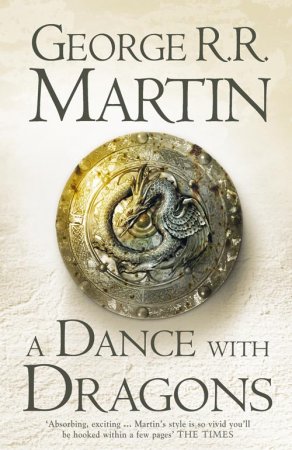 A Dance with Dragons
A Dance with Dragons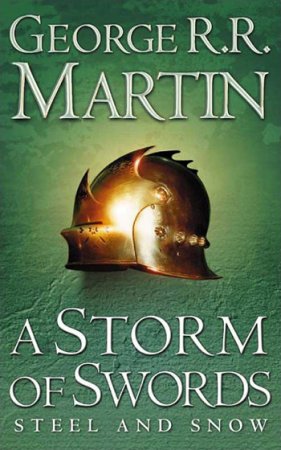 A Storm of Swords
A Storm of Swords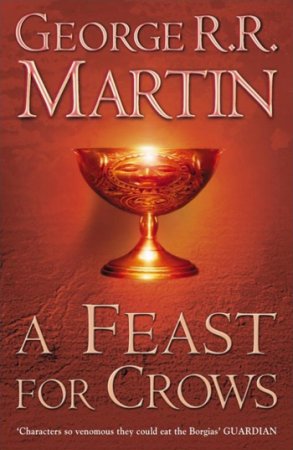 A Feast for Crows
A Feast for Crows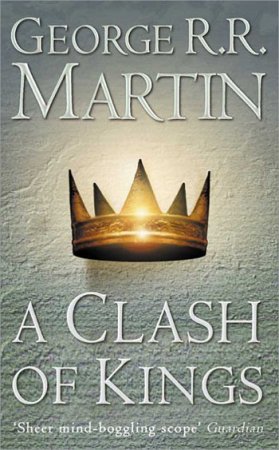 A Clash of Kings
A Clash of Kings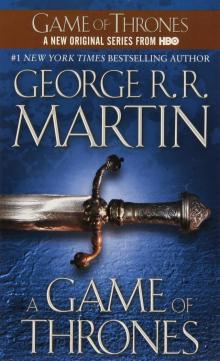 A Game of Thrones
A Game of Thrones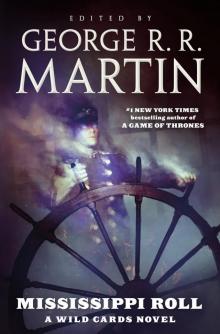 Mississippi Roll
Mississippi Roll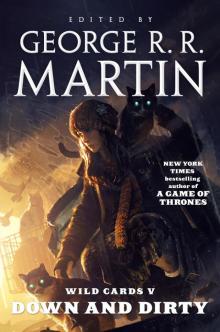 Wild Cards V: Down and Dirty
Wild Cards V: Down and Dirty Busted Flush
Busted Flush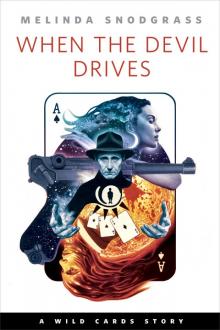 When the Devil Drives
When the Devil Drives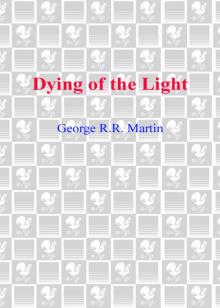 Dying of the Light
Dying of the Light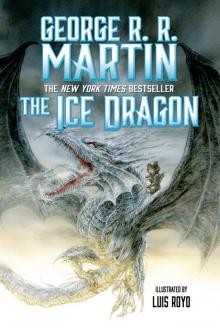 The Ice Dragon
The Ice Dragon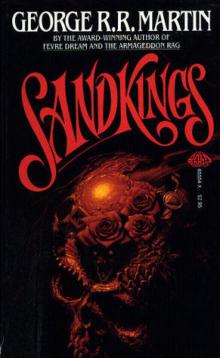 Sandkings
Sandkings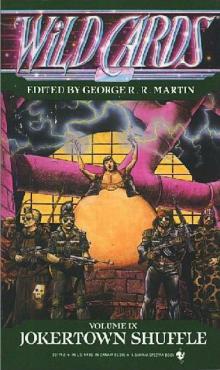 Jokertown Shuffle
Jokertown Shuffle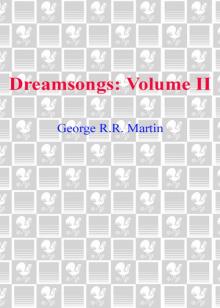 Dreamsongs. Volume II
Dreamsongs. Volume II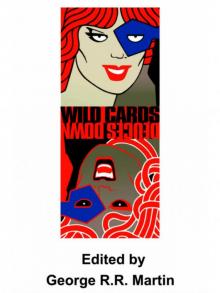 Deuces Down
Deuces Down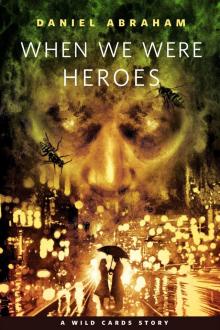 When We Were Heroes
When We Were Heroes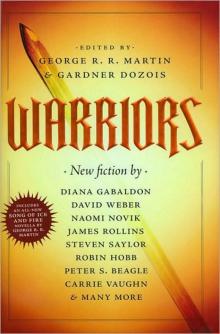 Warriors
Warriors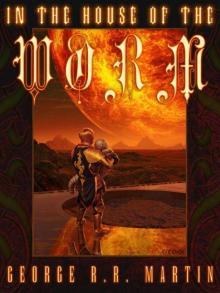 In the House of the Worm
In the House of the Worm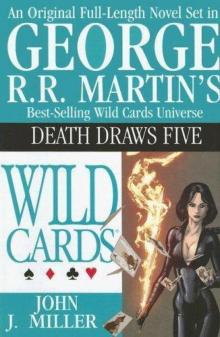 Death Draws Five
Death Draws Five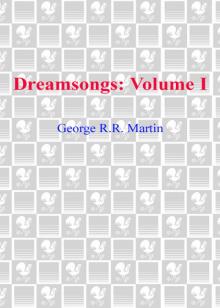 Dreamsongs. Volume I
Dreamsongs. Volume I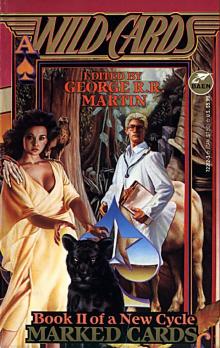 Marked Cards
Marked Cards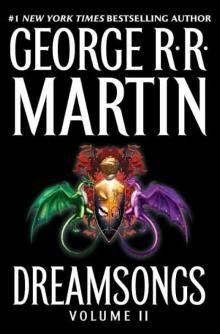 Dreamsongs
Dreamsongs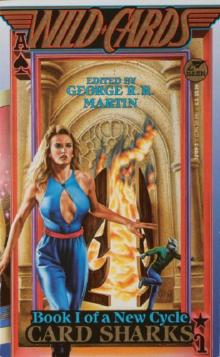 Card Sharks
Card Sharks Dangerous Women
Dangerous Women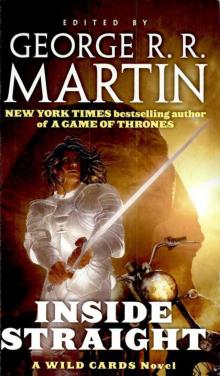 Inside Straight
Inside Straight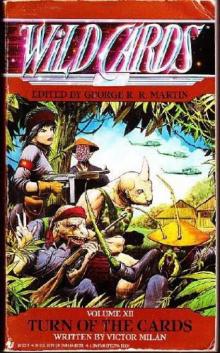 Turn of the Cards
Turn of the Cards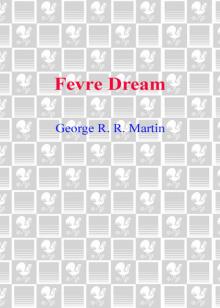 Fevre Dream
Fevre Dream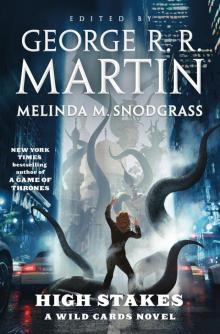 High Stakes: A Wild Cards Novel
High Stakes: A Wild Cards Novel Windhaven
Windhaven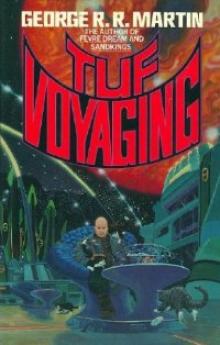 Tuf Voyaging
Tuf Voyaging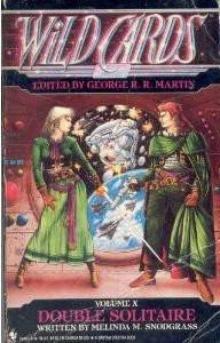 Double Solitaire
Double Solitaire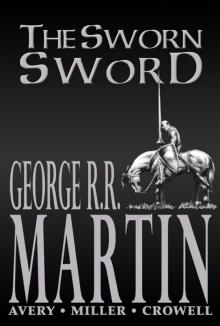 The Sworn Sword
The Sworn Sword Low Chicago
Low Chicago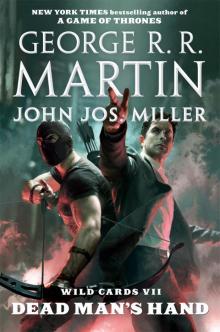 Dead Man's Hand
Dead Man's Hand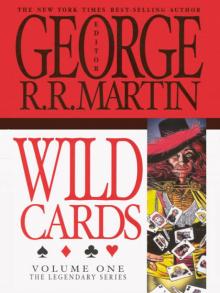 Wild Cards
Wild Cards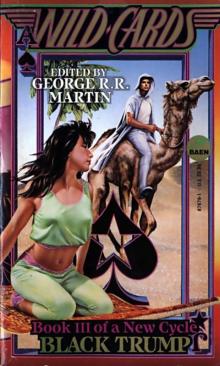 Black Trump
Black Trump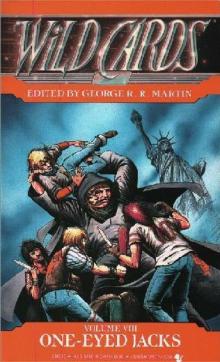 One Eyed Jacks
One Eyed Jacks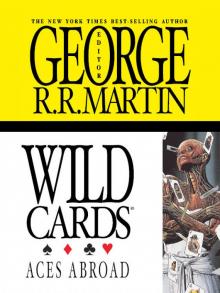 Wild Cards: Aces Abroad
Wild Cards: Aces Abroad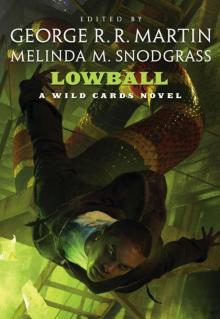 Lowball: A Wild Cards Novel
Lowball: A Wild Cards Novel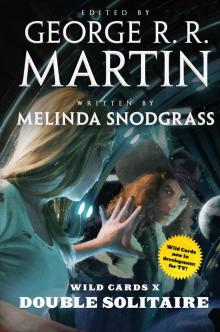 Double Solitaire (2019 Edition)
Double Solitaire (2019 Edition)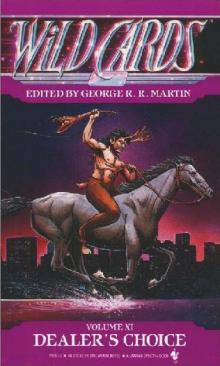 Dealer's Choice
Dealer's Choice Ace in the Hole
Ace in the Hole A Song for Lya: And Other Stories
A Song for Lya: And Other Stories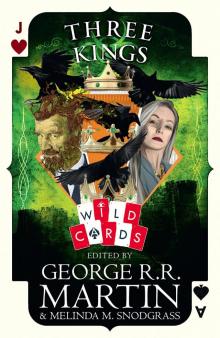 Three Kings
Three Kings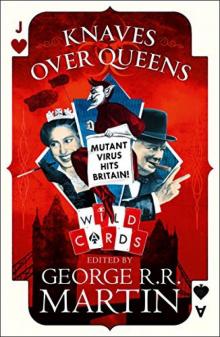 Knaves Over Queens
Knaves Over Queens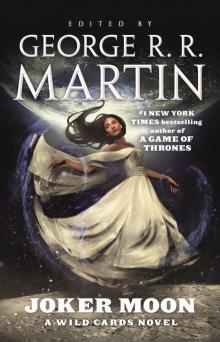 Joker Moon
Joker Moon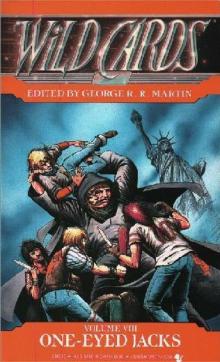 One Eyed Jacks wc-8
One Eyed Jacks wc-8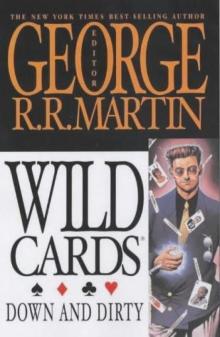 Down And Dirty wc-5
Down And Dirty wc-5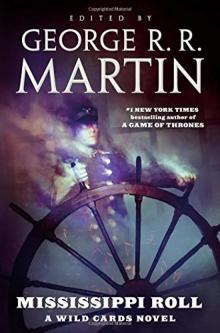 Mississippi Roll_A Wild Cards Novel
Mississippi Roll_A Wild Cards Novel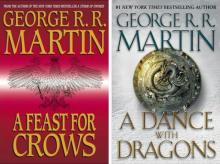 A Feast for Dragons
A Feast for Dragons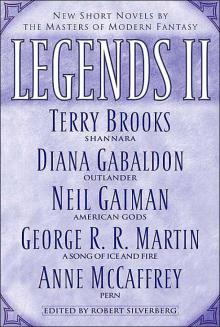 The Sworn Sword ttodae-2
The Sworn Sword ttodae-2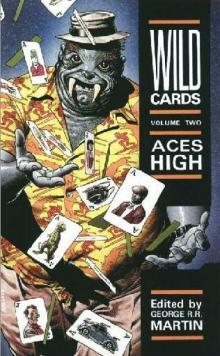 Aces High wc-2
Aces High wc-2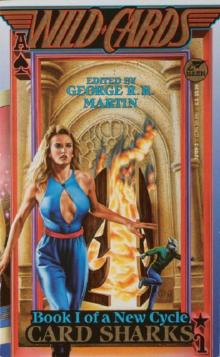 Wild Cards 13 : Card Sharks
Wild Cards 13 : Card Sharks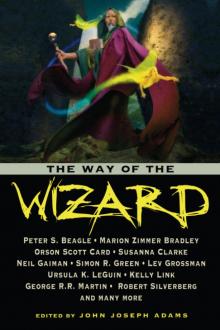 Way of the Wizard
Way of the Wizard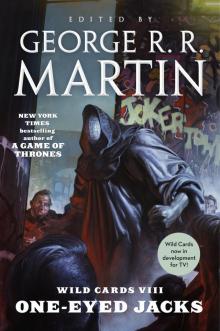 Wild Cards VIII: One-Eyed Jacks
Wild Cards VIII: One-Eyed Jacks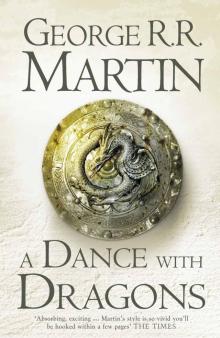 A Dance With Dragons: Book 5 of A Song of Ice and Fire (Song of Ice & Fire 5)
A Dance With Dragons: Book 5 of A Song of Ice and Fire (Song of Ice & Fire 5)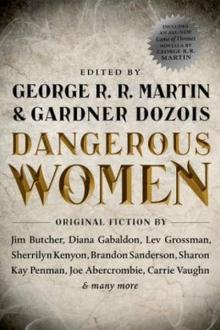 The Princess and The Queen, Or, The Blacks and The Greens (a song of ice and fire)
The Princess and The Queen, Or, The Blacks and The Greens (a song of ice and fire)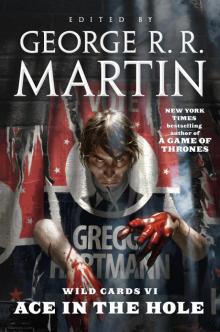 Wild Cards VI--Ace in the Hole
Wild Cards VI--Ace in the Hole The World of Ice & Fire: The Untold History of Westeros and the Game of Thrones (A Song of Ice and Fire)
The World of Ice & Fire: The Untold History of Westeros and the Game of Thrones (A Song of Ice and Fire)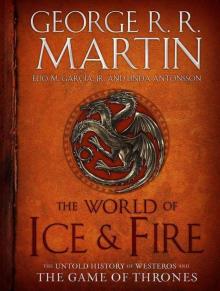 The World of Ice & Fire: The Untold History of Westeros and the Game of Thrones
The World of Ice & Fire: The Untold History of Westeros and the Game of Thrones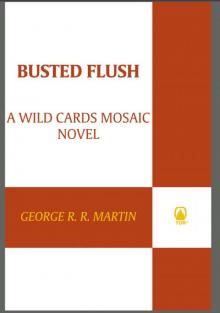 Busted Flush wc-19
Busted Flush wc-19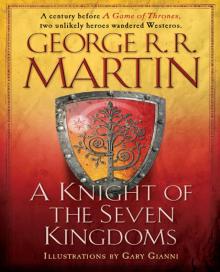 A Knight of the Seven Kingdoms
A Knight of the Seven Kingdoms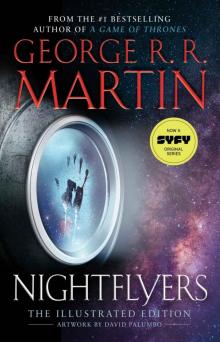 Nightflyers: The Illustrated Edition
Nightflyers: The Illustrated Edition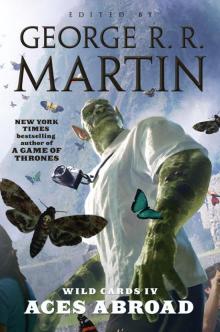 Wild Cards IV
Wild Cards IV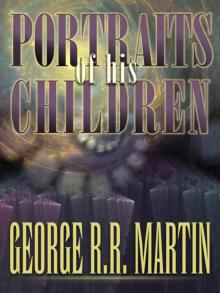 Portraits of His Children
Portraits of His Children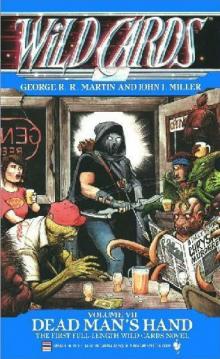 Dead Mans Hand wc-7
Dead Mans Hand wc-7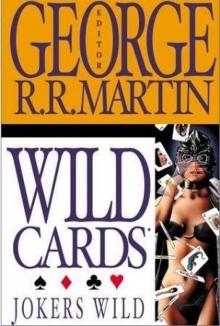 Jokers Wild wc-3
Jokers Wild wc-3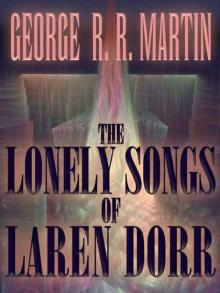 The Lonely Songs of Laren Dorr
The Lonely Songs of Laren Dorr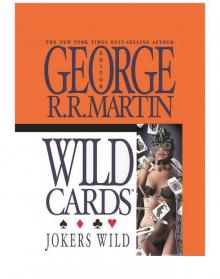 Wild Cards III: Jokers Wild
Wild Cards III: Jokers Wild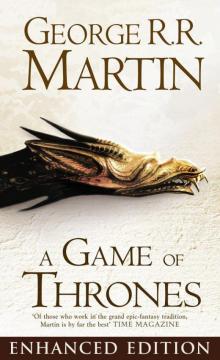 A Game of Thrones Enhanced Edition
A Game of Thrones Enhanced Edition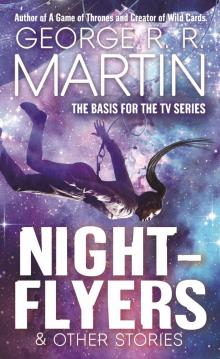 Nightflyers & Other Stories
Nightflyers & Other Stories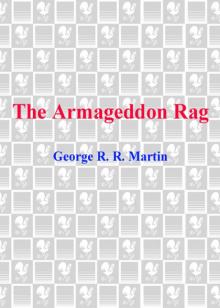 Armageddon Rag
Armageddon Rag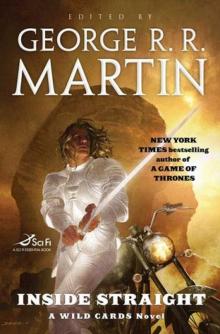 Wild Cards: Inside Straight
Wild Cards: Inside Straight A Song for Lya
A Song for Lya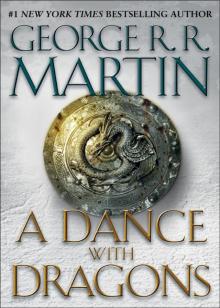 A Dance with Dragons: A Song of Ice and Fire: Book Five
A Dance with Dragons: A Song of Ice and Fire: Book Five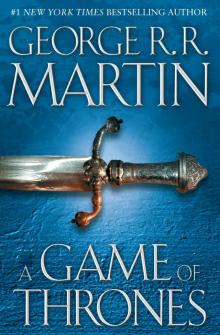 Song of Fire & Ice 01 - A Game of Thrones
Song of Fire & Ice 01 - A Game of Thrones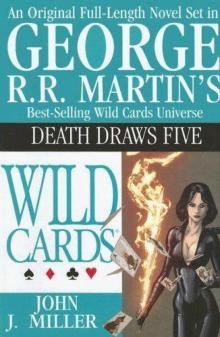 Death Draws Five wc-17
Death Draws Five wc-17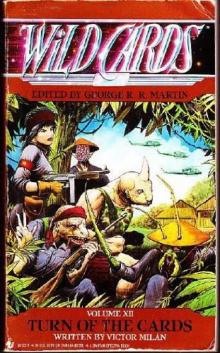 Turn of the Cards w-12
Turn of the Cards w-12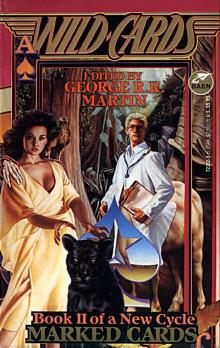 Wild Cards 14 - Marked Cards
Wild Cards 14 - Marked Cards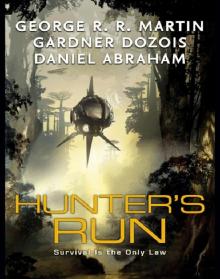 Hunter's Run
Hunter's Run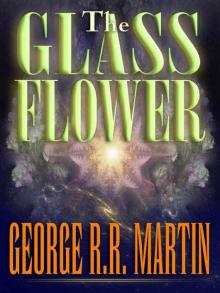 The Glass Flower
The Glass Flower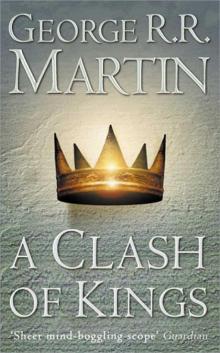 A Clash of Kings asoiaf-2
A Clash of Kings asoiaf-2 A Game of Thrones 5-Book Bundle: A Song of Ice and Fire Series: A Game of Thrones, A Clash of Kings, A Storm of Swords, A Feast for Crows, and A Dance with Dragons (Song of Ice & Fire)
A Game of Thrones 5-Book Bundle: A Song of Ice and Fire Series: A Game of Thrones, A Clash of Kings, A Storm of Swords, A Feast for Crows, and A Dance with Dragons (Song of Ice & Fire)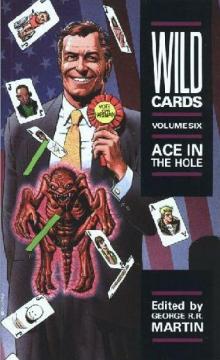 Ace In The Hole wc-6
Ace In The Hole wc-6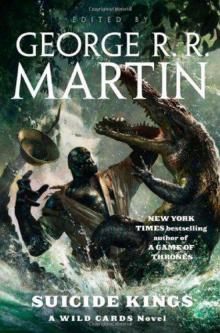 Suicide Kings wc-20
Suicide Kings wc-20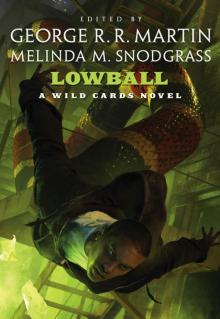 Lowball
Lowball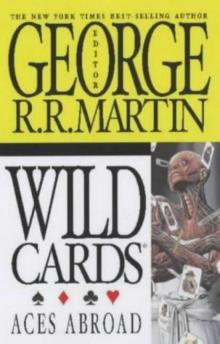 Aces Abroad wc-4
Aces Abroad wc-4 George R. R. Martin's a Game of Thrones 4-Book Bundle
George R. R. Martin's a Game of Thrones 4-Book Bundle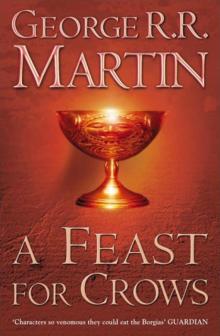 A Feast for Crows asoiaf-4
A Feast for Crows asoiaf-4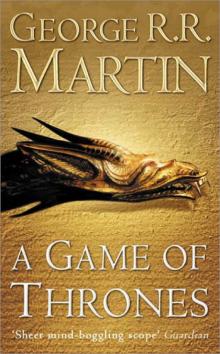 A Game of Thrones asoiaf-1
A Game of Thrones asoiaf-1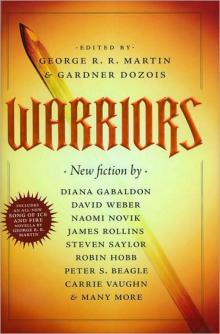 The Mystery Knight ttodae-3
The Mystery Knight ttodae-3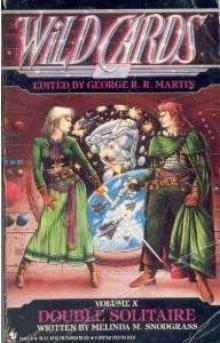 Double Solitaire w-10
Double Solitaire w-10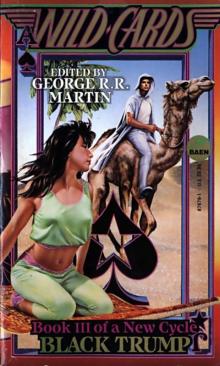 Wild Cards 15 - Black Trump
Wild Cards 15 - Black Trump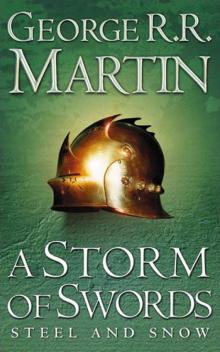 A Storm of Swords asoiaf-3
A Storm of Swords asoiaf-3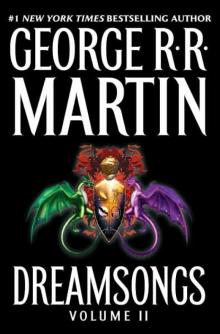 The Hedge Knight ttodae-1
The Hedge Knight ttodae-1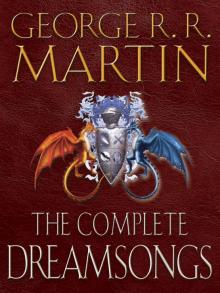 Dreamsongs 2-Book Bundle
Dreamsongs 2-Book Bundle The World of Ice & Fire
The World of Ice & Fire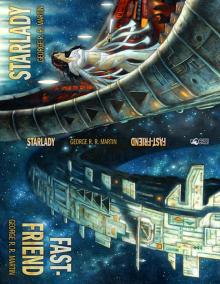 Starlady & Fast-Friend
Starlady & Fast-Friend Old Mars
Old Mars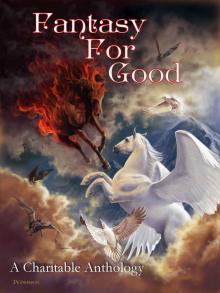 Fantasy For Good: A Charitable Anthology
Fantasy For Good: A Charitable Anthology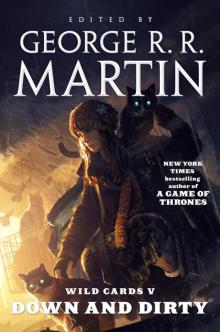 Wild Cards V
Wild Cards V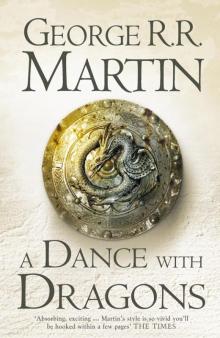 A Dance with Dragons asoiaf-5
A Dance with Dragons asoiaf-5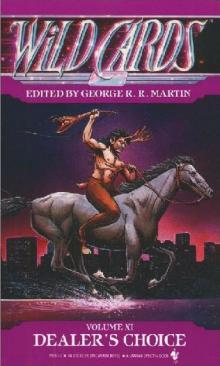 Dealer's Choice w-11
Dealer's Choice w-11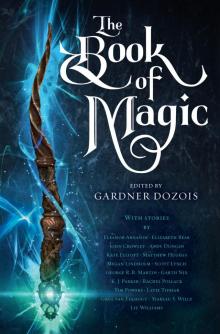 The Book of Magic
The Book of Magic A Game of Thrones 4-Book Bundle
A Game of Thrones 4-Book Bundle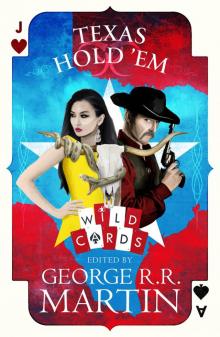 Texas Hold 'Em
Texas Hold 'Em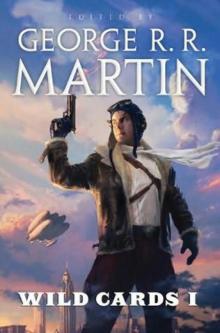 Wildcards wc-1
Wildcards wc-1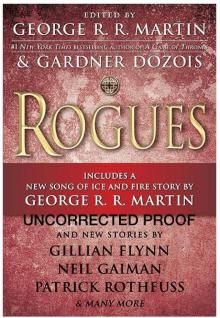 Rogues
Rogues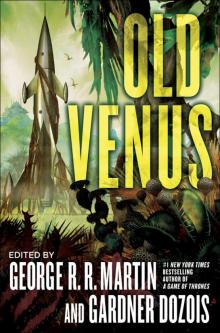 Old Venus
Old Venus